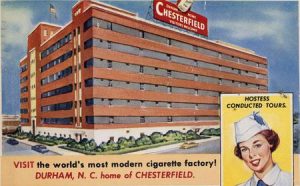If there is one person in B-SURF that’s happy about living on East Campus again, it’s me. Unlike many of my colleagues, who undergo a daily commute to West Campus and back, I take a 15-minute walk through downtown Durham to get to my lab, strolling past many of the local businesses that are still mainstays of life at Duke during the school year. It’s been cool to see the gradual revival of pre-pandemic life during this small commute every day – restaurants and bars open for indoor dining, people walking around with the lower part of their face uncovered, signs posted on storefronts indicating that masks are now optional.

Days in the lab are highly variable, to say the least. I usually head in between noon and 1 PM and head out when the experiments we’re running are finished (anywhere from 6-8 PM), or when I feel I have made enough progress on my code. Sometimes, solutions need to be prepared and cells need to be grown too, but in the downtime when I’m not at the bench, I try my best to explore literature relevant to the project, using the skills we’ve been developing in our B-SURF journal clubs to dissect papers on a variety of cool topics such as viral entry mechanisms, lectin binding, and computational modeling of protein/ligand interactions. When I’m trying to debug and test code, you can also find me reading documentation for functions whose syntax I can never remember, scrolling through stack overflow posts. and crossing my fingers that the ridiculous amount of open tabs will not kill my laptop’s battery life.
I also have gotten the chance to participate in lab meetings on Fridays at 9 AM, learning about the other cool work happening in the lab and marveling at the (many) ingenious methods scientists have come up with to engineer enzymes, create scalable biosynthetic processes, and precisely regulate the metabolic pathways in E. coli to inhibit growth and maximize production of the molecule of interest. At the end of each meeting, Dr. Lynch always asks each person to offer one piece of positive feedback and one piece of constructive criticism to the presenter, and I often find myself having a very difficult time coming up with good critiques, or qualifying my feedback with the classic “I’m not super familiar with this field, but…” Hopefully, someday, I won’t feel the need to preface my statements with that phrase.
